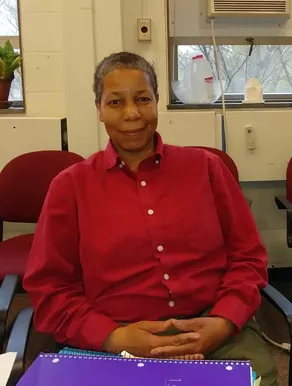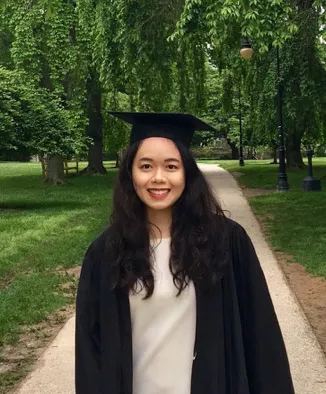
This article appeared in the Fall 2017-Spring 2018 Bryn Mawr Math Alumnae Newsletter.
“There is a strong need for diversity. And we need to have higher expectations,” explains visiting mathematician Karen Taylor during a recent conversation at Uncommon Grounds. Prof. Taylor is spending her sabbatical doing research at Bryn Mawr. She is an Associate Prof. of Mathematics at Bronx Community College, which is part of the City University of New York. She graciously agreed to share her perspectives with me on matters of diversity and mentorship, as well as professional development, in mathematics.
Karen grew up in Philadelphia. She got interested in math at a young age, and she was particularly fascinated with the concept of limit when she first encountered it in a calculus course. At the time, Karen was not sure what she could do with a math degree, but her father told her “You just keep taking math until you can’t do it anymore.”
So she did. Prof. Taylor earned a Ph.D. in mathematics from Temple University under the supervision of Marvin Knopp. Her research interests include analytic number theory and automorphic forms. In our conversation, Karen emphasized the positive effect that her two mentors (her father and Prof. Knopp) had on her career.
After earning her degree, Karen Taylor spent two years teaching at Lincoln University before accepting an offer of employment from Bronx Community College. Her experiences taught her that people skills matter most in interactions with students. Students come from all walks of life and have many different career goals. Most of the time math is not among their chosen pursuits.
“You really need to meet people where they are,” Karen explains. This requires patience and understanding. It is not, however, enough to be patient and to understand. Prof.s must also promote diversity by helping to create better opportunities for women and other underrepresented groups to advance in mathematics.
In addition to teaching and doing research, Karen enjoys social dance classes and participating in local conferences, of which there are many in New York. While the salsa classes brings her personal enjoyment, conference participation offers the opportunity for professional development.
“It’s important to get connected beyond your institutions by going to professional conferences. You need to put yourself out there and be open to different experiences,” Taylor emphasizes. Conferences help Karen evaluate her current professional progress and to reflect on the social values at her own institution. These events also provide the chance to meet like-minded people, develop a support group, or find a mentor. According to Prof. Taylor, young female professionals should not underestimate the roles of mentorship and support systems. They help open doors to professional opportunities and to provide the guidance necessary to thrive in one’s chosen career.
